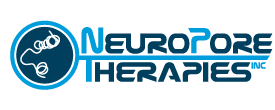News
Neuropore Announces Successful Completion of Phase I with its Lead Compound NPT200-11
Posted on March 21, 2016
- NPT200-11 was well tolerated in 55 volunteers after oral administration
SAN DIEGO, March 7, 2016 -
Neuropore Therapies, Inc. announced today that they have successfully completed the clinical conduct of their first Phase I clinical trial. The randomized, double-blind, placebo controlled single ascending dose study was designed to assess the safety and tolerability of NPT200-11. A total of 55 healthy volunteers were enrolled to evaluate the safety and tolerability of several doses of NPT200-11.
"We are very pleased with the completion of the first clinical trial with our lead compound NPT200-11. This is an important milestone for Neuropore and its portfolio development,” commented Dieter Meier, MD, Neuropore’s CEO. “The fact that NPT200-11 was well tolerated at exposures well above those that produced robust effects in our Parkinson’s disease animal models represents an essential step forward towards successful clinical development. We look forward to the further development of NPT200-11 as a disease modifying treatment in Parkinson’s disease.”
As announced in January 2015, Neuropore Therapies entered into world-wide collaboration with UCB to develop and commercialize NPT200-11 in all indications.
About Parkinson's Disease
Parkinson’s disease (PD) is the second most common neurodegenerative disorder after Alzheimer’s disease. There are an estimated seven to ten million patients with PD worldwide. Current treatments for PD are effective at managing the early motor symptoms of the disease, mainly through the use of levodopa and dopamine agonists. As the disease progresses and dopaminergic neurons continue to be lost, these drugs eventually become less effective at treating the symptoms. Currently there are no approved disease modifying treatments for PD
About NPT200-11
NPT200-11 is an orally bioavailable small molecule, has promising drug-like properties, and has shown robust beneficial actions on multiple endpoints in animal models.
About UCB
UCB, Brussels, Belgium (www.ucb.com) is a global biopharmaceutical company focused on the discovery and development of innovative medicines and solutions to transform the lives of people living with severe diseases of the immune system or of the central nervous system. With more than 7700 people in approximately 40 countries, the company generated revenue of € 3.9 billion in 2015. UCB is listed on Euronext Brussels (symbol: UCB). Follow us on Twitter: @UCB_news.
About Neuropore Therapies, Inc.
Neuropore Therapies is developing novel small molecule therapeutics to treat and slow the progression of neurodegenerative disorders such as Alzheimer’s and Parkinson’s disease. The approach being taken by Neuropore is to target an underlying pathological process common to these disorders – the accumulation of toxic oligomeric aggregates of misfolded neuronal proteins in cell membranes. By preventing the formation of these toxic aggregates synaptic function may be restored and neurodegenerative processes slowed.
Neuropore Therapies uses structure-based drug design and dynamic molecular modeling to identify key target regions on proteins that are important for the formation of toxic protein aggregates. Candidate compounds targeting these regions are then synthesized and evaluated in cell-free and cell-based assays. Promising compounds are further evaluated in various disease-related animal models. For more information visit www.neuropore.com.
Forward looking statements
This press release contains forward-looking statements based on current information, projections and assumptions of management. Statements in this press release that are not strictly historical in nature are forward-looking statements. By their nature forward-looking statements are not guarantees of future performance and are subject to risks and uncertainties which may cause actual results to differ materially from the forward-looking statements contained in this press release.
Important factors that could result in such differences include the risks and uncertainties inherent in drug discovery, development, approval and commercialization, collaborations with others, and the fact that past results of clinical trials and regulatory decisions may not be indicative of future trial results or regulatory decisions.
For Further Information
Media Contact Neuropore:
Dieter Meier, MD
Chief Executive Officer
Phone: +1 858-273-1831
Email: Dieter.Meier@neuropore.com
